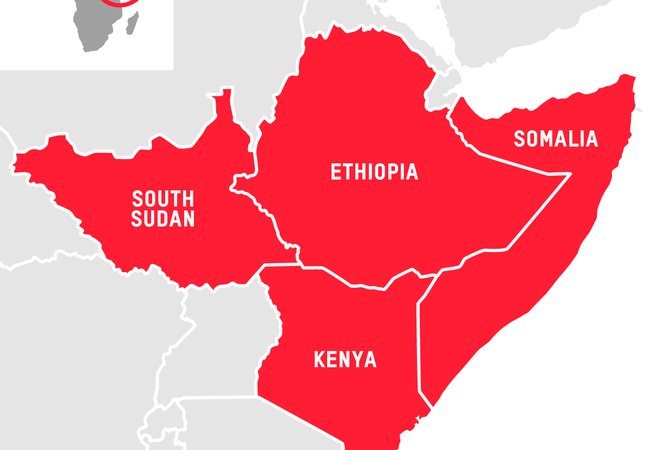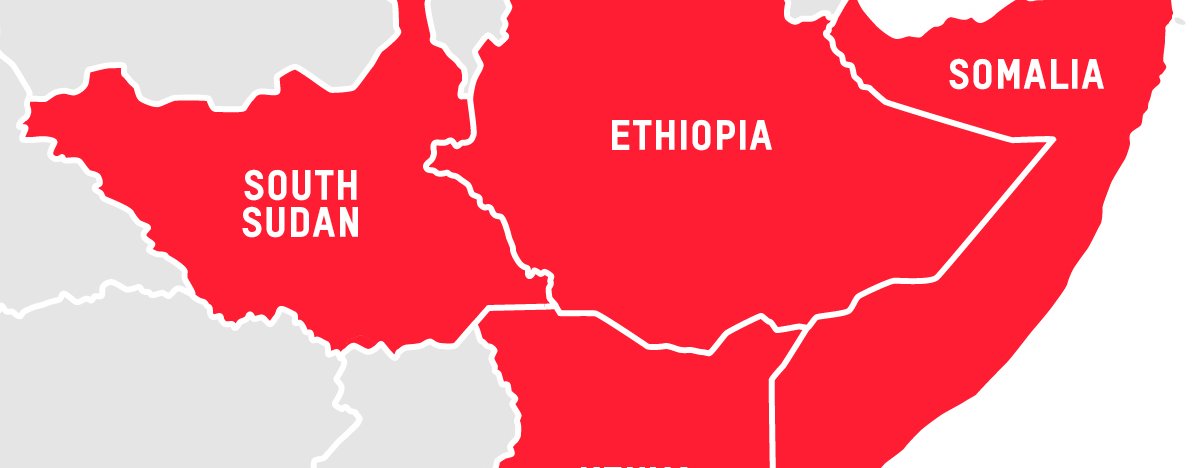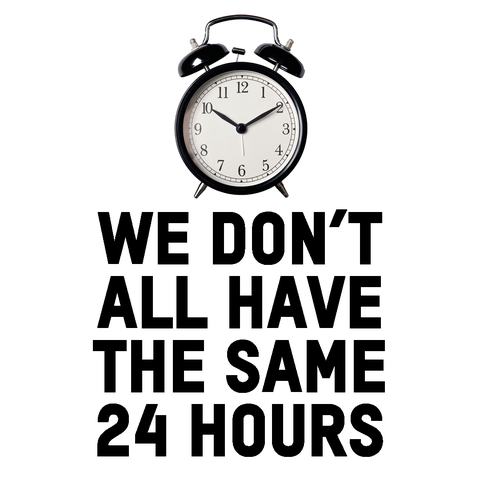

Cutting taxes for the rich is unfair and doesn't tackle poverty - here's why
Our CEO Danny Sriskandarajah returned from Somalia last week. Here and across that region of East Africa, famine is looming, and already it is estimated that one person is dying of hunger every 48 seconds.
“What’s heartbreaking is the fact that we know how to prevent famine”
But one thought kept haunting Danny as he met families on the brink. In his words: “What’s heartbreaking is the fact that we know how to prevent famine”. On top of the drought and the complications of conflict, there is an element of choice here. Political choices have been taken by those in power that mean that the humanitarian appeal for Somalia is underfunded. So far this financial year, for example, the UK Government has said they will spend less than a fifth of what they rightly put forward in 2017-8 during the region’s last major hunger crisis when major famine was prevented.
We were able to watch one of those political choices live on our television screens the other week as the new UK Chancellor of the Exchequer Kwasi Kwarteng delivered his “mini budget”. We think he made the wrong choices, and we also think there is a real risk that even worse decisions could be on the way that will have far reaching consequences.
The UK has been facing its own, very serious, cost of living crisis all year. Food prices have been rising, and energy bills were predicted to soar. In this context, many called for the new UK Prime Minister to take action to protect households and businesses from this energy price rise, which she rightly did. It was estimated by the government that this package of energy price caps would cost about £60bn pounds this year, and maybe be as much as £150bn over the next two years.
The choice to increase inequality
The choice facing the Chancellor and Prime Minister was therefore how to pay for this. They could borrow it all. Or they could find some money by taxing windfall profits and excess wealth. Instead, they chose to add to the pressure on public finances, by cutting taxes.
When you cut taxes, and especially when you cut the top rate of tax, the effect is to give more benefits to the rich. This is what this budget did. Even the International Monetary Fund took the unusual step of criticising the UK Government, saying that "The nature of the UK measures will likely increase inequality".
Oxfam has more than a decade of research to show that economic inequality is not only unfair, but undermines our ability to fight poverty, emphasises inequalities of race and gender, and contributes to climate change. In short, evidence that the Government made the wrong choice.
The faith in GDP growth
The government would argue that we shouldn’t be concerned about increasing inequality today as, the aim is to stimulate growth tomorrow which would benefit everyone. It is very unclear whether tax cuts really do stimulate growth. But it is also important to understand that growth doesn’t necessarily lead to less poverty.
You can have very uneven growth – based around a few cities or a few industries - and still leave large parts of the country behind. You can also grow your economy and not count the environmental damage you are doing for future generations.
So just hoping for ‘growth’ as a reason for cutting taxes for the richest, doesn’t seem like a good choice either.
The worse choices to come
So now we are left with an eyewatering hole in the public finances, to pay for the energy price cap, but also to pay for tax cuts for wealthy people and companies. Our very real fear is that the government will choose to make this up with spending cuts. There has been talk of reducing the amount spent on benefits. There are signs that climate change will not be a top priority, and we worry that the commitment to spend 3% of the UK’s GDP on defence spending will mean that the aid budget will be further cut.
And so we are back to Somalia, where families face famine. We cannot let these choices, made in Westminster mean that we don’t help people who are on the very brink of survival.
The government is starting to make the right choices - to listen – but they need to go further
Today, after a week of political turmoil, the Chancellor did make the welcome announcement that they would not be going ahead with getting rid of the 45p rate of tax. This does make a difference because that would have vastly contributed to inequality. But, by some estimates, that still leaves the government needing to find £43 billion in the next few years to fund the rest of the tax cuts. The risk of cuts to public spending, welfare and aid remains.
We need to speak out and take action.
- Share our video...
𝗦𝗵𝗮𝗿𝗲 𝘁𝗵𝗶𝘀 𝘃𝗶𝗱𝗲𝗼 𝗿𝗶𝗴𝗵𝘁 𝗻𝗼𝘄, as the Conservative party conference begins, to make sure #CPC22 get the message.
— Oxfam (@oxfamgb) October 2, 2022
We can’t let people facing poverty – anywhere – pay for handouts to the richest. Let's take action. pic.twitter.com/Yuw94BqUoc
More posts like this
28 Sep 2019
New polling from Tax Justice UK and Oxfam, conducted by YouGov, shows widespread public support from across the political spectrum for increasing taxes on wealth. The organisations say this would help to tackle inequality and raise revenue that could be used to fund public services and fight poverty.

27 Jan 2023
"I have always envisioned a world where we put people and planet before profits," says Kenyan climate activist Elizabeth Wathuti.
While billionaires are waking up to another day of astronomical wealth rises, a devastating food crisis is unfolding in East Africa.
We don’t all have the same 24 hours. Here’s why it’s time to raise the alarm...
16 Jan 2023
